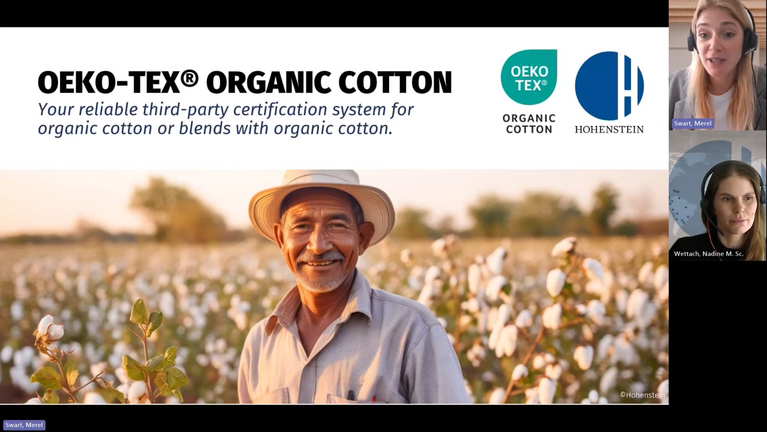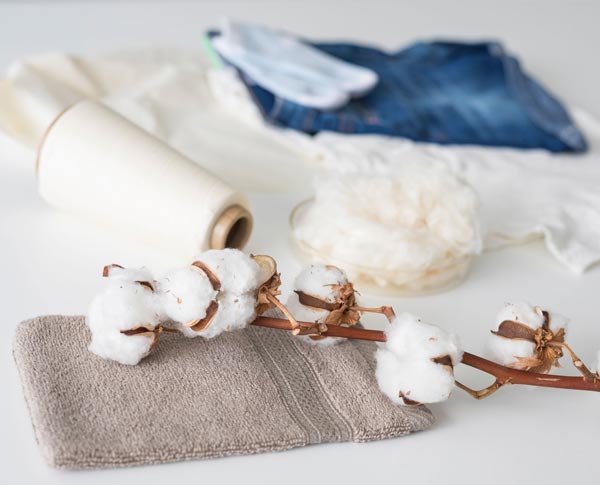Minimum 70% Organic
- Pre-certifications:
- OEKO-TEX® ORGANIC COTTON
- Transaction certificates
- GMO tests - fibers:
GMO < 5% - Pesticide tests:
Negative - Issued certificate & label:
OEKO-TEX® ORGANIC COTTON BLENDED
OEKO-TEX® ORGANIC COTTON is a globally standardized, independent testing and certification system for safer organic cotton. It certifies textile raw, intermediate and end products of all processing stages, as well as accessory materials, consisting of at least 70% organic cotton.
Testing and certification according to OEKO-TEX® ORGANIC COTTON requires:


OEKO-TEX® ORGANIC COTTON certification facilitates operational quality assurance and communication with stakeholders and consumers:
As long as no changes have been made to the product covered under a supplier's certificate, a company may use their supplier's certificate/label.
Alternatively, many brands and retailers opt to re-certify the product(s) and maintain control with their own label number.
It is common that some or all of the inputs/ingredients of a product have been pre-certified by the supplier(s). Although this is NOT required, using pre-certified components helps to catch any issues at the source, where the chemical decisions are made in the supply chain.
With ORGANIC COTTON, traceability must be maintained through official transaction certificates.